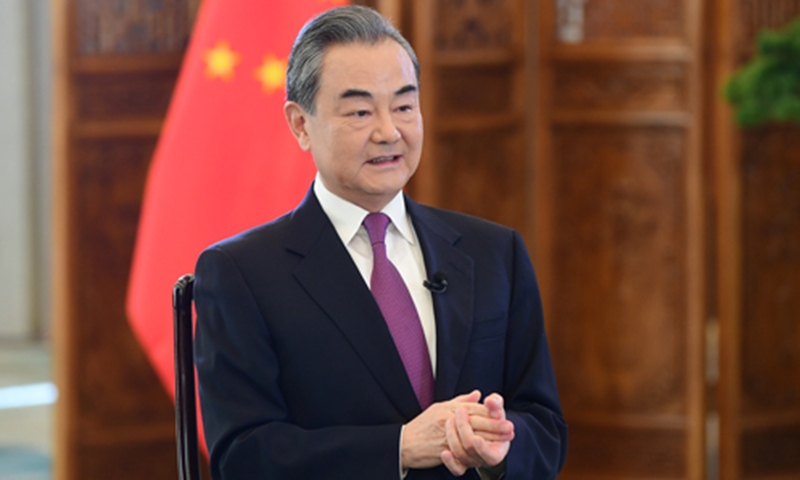以下文章来源于环球时报英文版,2021年1月11日
李开盛,上海社会科学院国际问题研究所副所长、研究员

China's State Councilor and Foreign Minister Wang Yi
Chinese State Councilor and Foreign Minister Wang Yi embarked on his four-nation Southeast Asian tour Monday, one day after he finished his traditional first visit of the New Year to Africa.
It is not surprising that his second overseas journey comes right after the first one. For China, Southeast Asia is of special importance in this year's diplomacy.
Politically, 2021 marks the 30th anniversary of ASEAN-China Dialogue Relations. A series of celebrations may be held to upgrade bilateral relations. Economically, ASEAN became China's largest trading partner in 2020, in addition to the signing of the Regional Comprehensive Economic Partnership (RCEP). This year will see an even bigger embrace of enhanced China-ASEAN ties in addressing COVID-19 and promoting regional cooperation.
The first stop of Wang's Southeast Asia tour is Myanmar. He will be the first foreign dignitary to visit the country since the November election in the country. During Chinese President Xi Jinping's visit in January 2020, the two countries agreed to make joint efforts to build a China-Myanmar community with a shared future, laying the basic framework for future China-Myanmar relations. Wang's visit will inject new impetus to these bilateral relations.
Consolidating the stability of the South China Sea will be undoubtedly one focus of Wang's visit. The South China Sea situation has basically remained stable in recent years, but challenges remain ahead and the prospect is still concerning.
The first challenge is whether or not the Code of Conduct (COC) can be established. Due to the pandemic and the differences among relevant parties, it's difficult to make substantial progress and reach an agreement that is acceptable to all parties in the short term.
Second, it's very likely that the incoming Biden administration will increase US intervention in the South China Sea issues. In addition to making waves with the so-called freedom of navigation operations, the new US government may ratchet up efforts to seduce relevant countries to reduce or abandon cooperation with China. It could even take advantage of them to stir up trouble in the South China Sea waters.
Relevant countries need to meet each other half way, reach a consensus, and take practical measures to manage differences and promote cooperation. These are keys to maintaining the stability of the South China Sea.
Vaccine cooperation will likely be high on Wang's agenda. Certain Western media outlets and countries have been accusing China of attempting to expand influence in Southeast Asia with the so-called vaccine diplomacy.
Vaccines are important public goods to fight the pandemic. China's promise in distributing vaccines to developing countries, including many in Southeast Asia, demonstrates that it is a responsible major power willing to bear its international obligations. Besides, no evidence indicates that China attaches additional political and economic conditions for access to its vaccines. The West's speculation and rabble-rousing is sinister and irresponsible.
China-suspicious and anti-China forces in some neighboring countries of China have also taken every opportunity to censure or smear China's vaccines. This politicizing of the public health issue is not conducive to relevant countries in curbing the impact of the pandemic.
Against this backdrop, during Wang's visit, a better implementation of vaccine cooperation shall be an important topic. This requires China to do more to reduce misunderstandings about the reliability of its vaccines. Countries concerned are also required to depoliticize the issue, which should transcend diplomatic games and domestic partisanship.
Since the 18th CPC National Congress in 2012, China's neighbors, especially those in Southeast Asia, have been given priority in China's diplomacy. Driving by the RCEP and the China-proposed Belt and Road Initiative, China and its neighbors are now in the best position to take the lead in building a community of a shared future.
The Biden administration will soon take office. Compared with Trump, Biden will attach more comprehensive and in-depth attention to Southeast Asia. First, he will pay more attention to rebuilding the US' soft power in Southeast Asia. Second, the Biden administration will strengthen US efforts to woo countries in the region to contain China. Third, it may resort more to diplomatic means such as undermining the COC negotiations between China and ASEAN.
As a result, cooperation between China and Southeast Asian countries is facing more subtle and profound challenges. In this regard, China should further promote the construction of a community of shared future with its neighboring countries, and in particular, achieve more mutual benefits and win-win results in terms of economics and trade.
Besides, the creation of a lasting and effective institutional platform is also very important. China should prioritize making stronger mechanisms for 10 plus 1 between China and ASEAN, the China-Japan-South Korea trilateral cooperation, and other deals with neighboring cooperation.